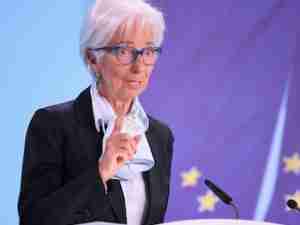Weidmann Dismisses Trump Team’s Euro Claims Before G-20 Gathers
By: Jana Randow | Mar 13 2017 at 11:51 AM | International Trade
Bundesbank President Jens Weidmann sought to close down a dispute over currency devaluation, reiterating that Trump administration criticisms of the weak euro are unfounded just days before hosting a meeting of global counterparts in Germany.
“Accusations that the German government is using a low euro exchange rate to exploit the U.S. are baseless because the exchange rate is more or less the result of the monetary policies and the different cyclical positions on both sides of the Atlantic,” Weidmann said in an emailed response to questions on Monday. “There is a kernel of truth in the argument that the U.S. dollar is strong, and this is also an expression of increased confidence in the near-term economic outlook.”
Weidmann and German Finance Minister Wolfgang Schaeuble are set to welcome Group of 20 finance chiefs in Baden-Baden from March 17, as part of Germany’s presidency of the club of key developed and emerging market economies. Against the background of claims in recent weeks by U.S. government officials that nations including Germany, Japan and China are deliberately cheapening their currencies to win an export advantage, the consensus that underpins the group’s operation is under threat.
Treasury Secretary Steven Mnuchin plans to use his G-20 debut to drive home the message that the U.S. won’t tolerate countries that engage in currency devaluation to gain an edge in trade, according to people familiar with the matter.
No Manipulation
The euro has lost about a quarter of its value against the dollar since 2014, when the European Central Bank cut interest rates below zero and started asset purchases to stave off the threat of deflation in the region. The ECB intends to keep quantitative easing going until at least the end of this year, while the U.S. Federal Reserve has ended its own QE and started raising rates.
Weidmann noted that the ECB is required to gear its stance toward the 19-nation bloc as a whole, and that the U.S. has itself previously gained from a weak currency.
“In the past 10 years, however, the U.S. economy benefited from quite a favorable exchange rate,” he said. “In the short run, competitive devaluations may be beneficial for first movers; in the long run, however, they hurt everyone involved. That’s why the G-20 agreed to abstain from currency manipulations.”
A draft G-20 communique dated March 1, seen by Bloomberg News, showed that officials plan to “reaffirm our previous exchange-rate commitments” at the Baden-Baden meeting. While a previous pledge to refrain from competitive devaluations and not use exchange rates for competitive purposes was absent, further drafts are likely before the final version is published.
Merkel Meeting
Trump is holding his first meeting with German Chancellor Angela Merkel at the White House on Tuesday, where Merkel will likely push back against criticism of the exchange rate and argue that U.S.-European commerce is mutually advantageous. She may warn Trump that her government would consider retaliatory measures including higher tariffs for American companies, Der Spiegel magazine reported.
Weidmann argued that free trade isn’t a “zero-sum game” in which one country wins at the expense of another.
“It goes without saying that what a government wants, first and foremost, is to increase its country’s prosperity; after all, that’s what it has been elected to do,” Weidmann said. “But that isn’t something that calls into question the value of multilateral cooperation, open markets and free trade.”
Bank Rules
He said he wouldn’t be surprised if criticism of Germany’s trade balance were to intensify but argued that the surplus, which exceeded 8 percent of gross domestic product last year, can be partially explained by demographics. “It wouldn’t be smart to adopt economic policy measures designed to artificially deteriorate German competitiveness,” he added.
On the global bank rules known as Basel III, Weidmann said everyone has an interest in returning to the negotiating table as soon as the new U.S. team has been appointed.
“I firmly believe that the coordinated international revision of banking regulations in recent years has made the financial system more stable,” he said. “That is why a regulatory ‘race to the bottom’ would be a dangerous thing.”
